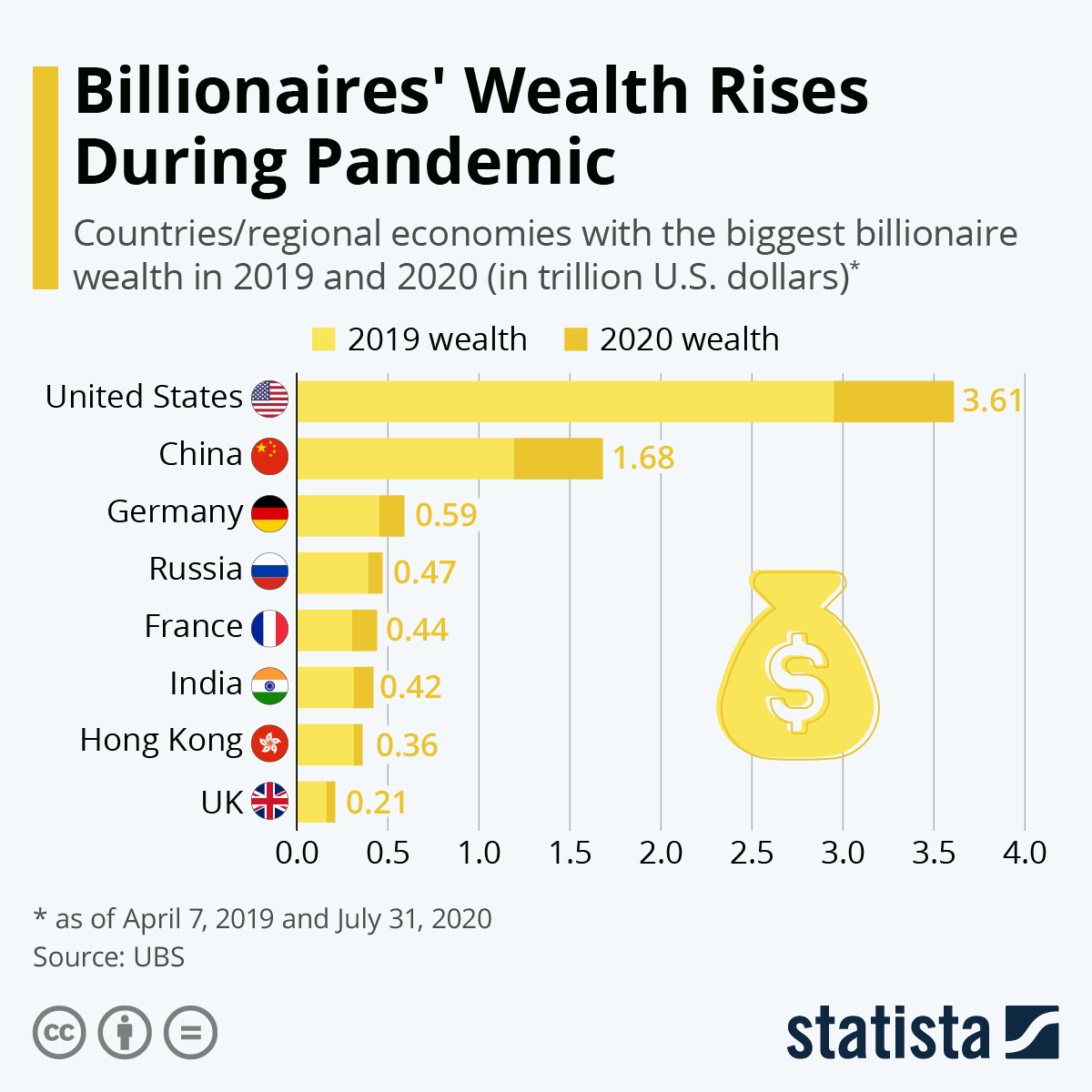There is no reality which is not mediated by perception. This is not to say that there is no reality; the famous “I refute you thus,” kicking a rock, applies. It does not mean there are no natural laws, no physics, chemistry, or even truth—or Truth. It means that we decide what reality means through a thick lens of belief. This lens picks out what is important, obscures the unimportant, and distorts everything, and most people are hardly even aware that it exists.
Keynes once wrote that most politicians are slaves of some defunct economist, generally whose name they don’t even know. That we should regulate the world through markets is an idea which would have been absurd to virtually everyone three hundred years ago, even as the divine right of Kings is absurd to us today. That corporations should shield their owners from liability is an idea which was bitterly opposed by most capitalists two hundred years ago. That greed leads to better outcomes was laughable to virtually everyone, including Adam Smith, who thought it worked only in very specific circumstances and lamented that tradespeople were constantly in conspiracy against the public.
That goods, including food, should be primarily divided based on market success is another idea that most of the world, for most of history, has never held.
What is oddest about our modern ideology is the same thing that is odd about virtually all ideologies: It contradicts itself. We do not have either free or competitive markets, and not one in a hundred free market ideologues could define a competitive market, nor would they want one if they could, as an actual competitive market reduces profits to nearly nothing. Free markets cannot exist without government coercion, yet we have come to assume that it is government which makes markets unfree, which is a half truth at best. It’s markets that make governments unfree when they buy government–and the first thing any good capitalist does upon winning a market is try to eliminate the free market, since an actual free market threatens a monopolist or oligopolist.
An ideology tells us what is thinkable and what is unthinkable, what is moral or immoral, ethical or unethical. Right or wrong. It either says that 90 percent taxation is right and good when imposed upon great wealth, or an unthinkable burden on “value” creators. It further defines value, for instance, privileging financial innovation which actually destroys genuine good production. It says that food that makes us sick is acceptable and that banning such food is unethical. It says that it is right and proper that men and women meet their needs by working for other people, without any ability to meet their own needs if the market deems them surplus beyond private or public charity. It says that land that lies fallow is not available for anyone to grow food, that pumping poison into water and food and air is acceptable, that rationing health care by who has the most money is the best way to organize health care. Or, it could say that healthcare is too important to allow people to buy their way to the front of the line.
People think that their individual decisions matter, but so much of what happens is dictated by social contexts. A man goes to war, or not, and that has little to do with him personally. A college student has a huge debt and that is because she is a Millennial, not a Baby Boomer. A generation has fantastic success, but that is because they are the GI Generation in America. These circumstances are not the results of individual decisions, even if it feels like it. Born 30 years earlier, the exact same people would have stagnated on farms. A generation raised in affluence undoes all the protections put on the economy by those who experienced the Great Depression, because they think they know better, really, and they never experienced the Great Depression or the Roaring ’20s.
One of the most important books of the past 200 years was a pamphlet, The Communist Manifesto. You should read it. Virtually every demand in the Communist Manifesto has been met by Western Democracies. Conservatives like Otto Van Bismark looked at it and said, “Oh, you want pensions? We can give you that if it means you don’t rebel and cut our heads off.”
A credible opposing ideology, a credible existential threat to the reigning ideology, creates a reaction. That reaction can be, well, reactionary, but it tends to blend towards that ideology. When the main ideological and material competition to Western Capitalist Democracy is a nasty form of Islam and Chinese Totalitarian State-run crony capitalism, that leads nowhere good, not least because they aren’t credible threats (no, Islamism is not going to conquer Europe, Japan, North America, or South America, sorry).
But an ideology organizes things. The Assyrians, the Babylonians, the Akkadians, the ancient Egyptians, if they wanted to do something, set up a new religion, with a new God. They were quite brazen about creating Gods, really. They ran the banks out of the churches, and indeed, ran some truly terrible usury, with interest rates as high as thirty to forty percent (which is why debt holidays were instituted, it didn’t take long before people owed more grain or silver than existed in the entire universe, with rates like that).
When we want to do something, we fiddle with market design, with little incentives here or there. We make bureaucratic rules, create new laws, set up secret courts and bureaucracies to run them, make small adjustments here or there to make sure things work out as we want. A little tax here or there, a subsidy here or there, a patent or IP law change, a law requiring millions of dollars before one can set up a bank, laws allowing corporations to monetize public research by universities, and all the right people make money and the wrong people don’t, and all is good in the world.
The fundamental idea of our current regime is one that most people have forgotten, because it is associated with Marx, and one must not even talk about the things Marx got right, because the USSR went bad. The fundamental idea to which I refer is that we are wage laborers. We work for other people, we don’t control the means of production. Absent a job, we live in poverty. Sure, there are some exceptions, but they are exceptions. We are impelled, as it were, by Marx’s whip of hunger. It took a lot of work to set up this system, as Polyani notes in his book The Great Transformation, but now that it has happened, it is invisible to us.
A new ideology that leads to prosperity should insist on changing this relation to the means of production. This doesn’t mean a Marxist proletarian “communist” paradise, but it does mean giving ordinary people back real economic power, which means the real ability to say “no” to wage labor, and freedom from needing to take the next job that comes along regardless of what it is. Not only will this lead to a different, much more fair division of goods created by society, it will lead to much better treatment of wage labor workers. The experience of the dotcom boom should be instructive in this regard: When you can walk out because you don’t need this job and it isn’t clear you can be replaced, bosses suddenly start treating you very, very well indeed.
I’ll talk about what that ideology looks like and what that society looks like, at a later date, certainly in my non-fiction book. It will be, not a consumer society, but a producer one, in which most people feel that they can make things, feel that they can provide for much of their own needs. Though many people sneer at the idea that technology matters, in actual fact, technological change makes possible new modes of production, along with new social arrangements. The assembly line and factory imply a type of social arrangement, the heavy plow implies a type of social arrangement, hunter-gatherer implies yet another. Within each of these technological tool kits, however, there are choices: Some hunter-gather bands are the sweetest, most kind, peaceful people you could ever want to meet. Others are high practitioners of torture and head-hunting. Central planning of the Soviet variety and industrial democracy of early to mid-twentieth century America are both within the possibilities of industrialization. Radios were originally used much like the early internet till the government used the excuse of the Titanic sinking to seize the airwaves from the early pioneers and sell them to large companies.
There are, ultimately, two dominant strategies: cooperate or compete. If you want widespread prosperity, the dominant strategy in your ideology must be cooperation, though competition has its place. And ultimately the difference between the right and the left is this: The right thinks you get more out of people by treating them badly, the left thinks you get more out of people by treating them well.
An ideology that believes in treating people well is a lot better to live under. And as a bonus, happy people are a lot more fun to be around. And societies with that ideology, all other things being equal, will tend to out-compete those who believe that fear, misery, and the whip are the best way to motivate people.
Finally, an ideology that succeeds is always universalist. It asserts, for example, that all people have certain rights and does not admit exceptions. This may bother the relativists, but a powerful ideology admits no doubt on core ethical concerns: Democracy is how everyone should rule themselves, no exceptions, or, everyone has a right to a trial and to see the evidence against them, or, anyone who doesn’t worship the True God is going to hell.
A powerful ideology is a scary thing. If your ideology isn’t strong enough, doesn’t create fervent enough belief that people are willing to die for it, then it won’t change the world. But if it does create that level of fervent belief, then it will be misused. The question is simple: Will this do more harm than good?
An ideology which leads to us killing a billion or more people with climate change, allow me to posit, is a bad ideology. At the end of its run, neoliberalism will kill more people than Marxist-Leninism did, and our grandchildren will consider it monstrous. Most of them will be no more able to understand how or why we submitted to it (or even believed in it) than we can understand how Hitler or Stalin or Pol Pot or Mao came to power. Hyperbole? Not in the least, because the body count is going to be phenomenal.
When faced, then, with a monstrous ideology, our duty is to come up with a better one, an opposing one. Because ideology determines what we do. It is both the lens through which we see the world, and the motor that pushes us forward.
(Originally Published October 22, 2013. Back to the top in 2017 as most current readers won’t have seen it, and it’s foundational. Back up again, October 9, 2021, for the same reason.)
If you enjoyed this article, and want me to write more, please DONATE or SUBSCRIBE.


